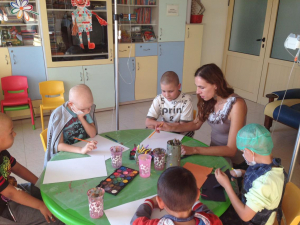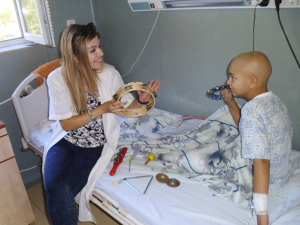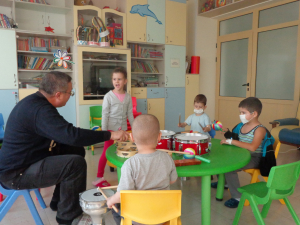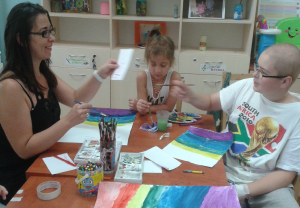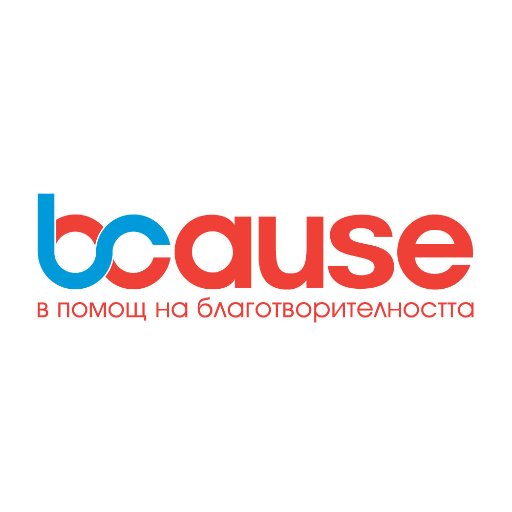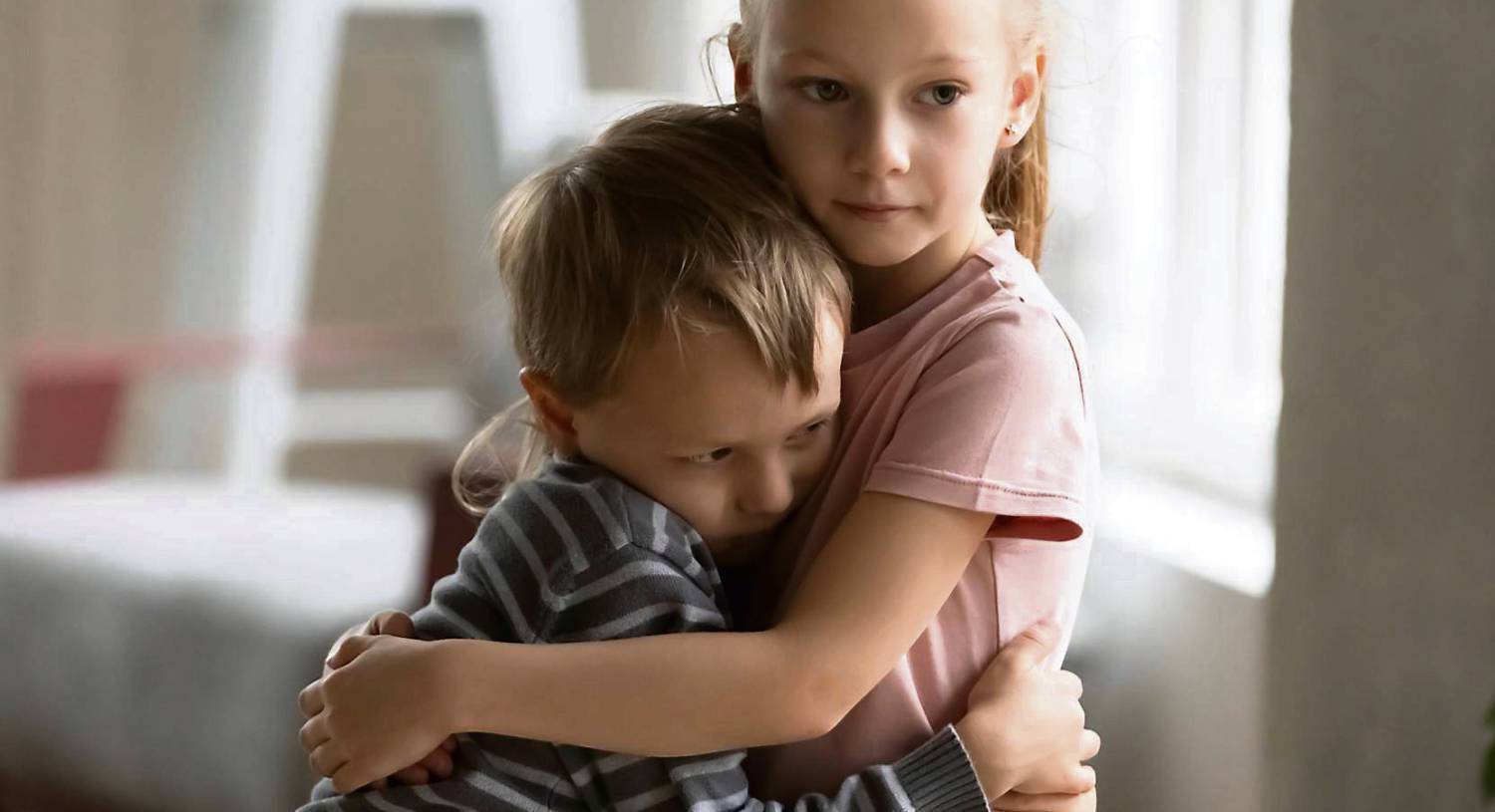
Siblings of children with cancer feel a lot of stress. Family routines change, and they may feel experience anger, sadness, anxiety, and guilt. They may worry about what is happening to their brother or sister, feel afraid they did something to cause their sibling's cancer, or feel as if they are getting less attention from their parents. They can also find it hard to manage school responsibilities and social relationships when everything at home is changing. Parents can help siblings adjust by explaining what is happening, talking with them about their feelings, making space for their concerns and worries, and making sure siblings have routines in the "new normal."
Helping siblings cope with the cancer diagnosis
When a brother or sister has cancer, it helps siblings cope if they have information about what is happening. The most important thing parents can do is to be honest and share what they know in ways that are right for each child's age and stage of development. General strategies that help children of all ages include:
- Arranging visits to the hospital to see their sick brother or sister and to meet the health care team.
- Talking with the health care team about specialists that provide support services for siblings.
- Explaining the diagnosis and treatment in words your child can understand.
- Encouraging siblings to share their feelings with parents or other trusted caregivers.
- Planning for daily contact with a parent or trusted adult who’s a consistent part of the child’s life.
- Sharing information about the family's cancer experience with schools or day care.
- Engaging friends and extended family members to help create routines, keeping caregivers consistent as much as possible.
- Monitoring for changes in behavior and asking the school or health care team for support if siblings are showing signs of distress.
- Reassuring siblings that their feelings are normal and important.
- Letting them know that they are just as loved and valued as the child who is sick.
- Making sure they know they did not do anything that caused their sister or brother's cancer and that it is not contagious.
Helping siblings cope based on their age and developmental stage
Children of different ages are able to understand different kinds of information. Here are suggestions to help siblings based on their age and stage of development. All siblings, regardless of their age, will benefit from having some time with their parents each week that is focused just on them.
Infants and very young children (birth to age 3)
- Keep your baby or child near you, if possible. Talk with your cancer care team about whether infants can stay overnight when their sibling is in the hospital.
- Use video, phone, and other means so your child can see and hear you in real time.
- Record lullabies, stories, and messages for when you can’t be at home.
- Remind toddlers often that mommy or daddy will be back soon.
- Cuddle and hug them a lot.
- Do not try toilet training or other major developmental tasks until new routines are in place.
Toddlers or pre-schoolers (ages 3 to 5)
- Give a simple explanation that brother or sister is sick and that the doctors are helping them.
- Keep caregivers informed about your family situation.
- Continue to set limits on behavior the same way you did before, this is part of their routine.
- Know that children this age may respond to stress by acting like they did when they were younger (having accidents even though they were toilet-trained, having tantrums as they did when they were 2 or 3).
- Have siblings nearby to make it easier to involve them (for example, use a local Ronald McDonald House during hospitalization or treatment).
- Give simple reasons for a parent’s crying and sadness, by saying "I am crying because I am sad."
- Take time to tell them that they did nothing to cause their brother or sister's cancer.
- Talk with the child life expert or social worker at the hospital about ways to provide positive reinforcement for your child’s newfound independence and supportive role in the family.
School-age children (ages 6 to 12)
- Take your child to an educational or support program or a camp for siblings if available.
- Answer all questions honestly, including, “Will he (or she) die?” Get help from the social worker and cancer care team, if needed. "
- Offer repeated reassurance that the sibling did not cause the cancer.
- Support having fun, despite brother or sister’s illness – make sure they don’t feel guilty about it.
- Suggest siblings write or phone, and send drawings, pictures, text messages, email, or voice messages to the patient.
- Offer reassurance that the family will be OK.
- Explain that the parents’ distress, sadness, or crying is OK.
- When possible, let the sibling help choose where to go after school and have a voice in who they prefer to care for them when a parent can’t be there.
Teens (ages 13 to 18)
- Arrange for the teen sibling to tour the clinic and ask questions of the cancer team if they wish.
- Find out if the cancer center has a special group for siblings.
- Discuss spiritual concerns related to diagnosis.
- When possible, let the sibling help choose where to go after school and have a voice in who they prefer to care for them when a parent can’t be there.
- Provide assurance that the family will be able to handle the crisis.
- Encourage teens to keep up their usual involvement in school and other activities.
- Ask your teen to help out at home, but don’t expect them to take on all the caregiving, housekeeping, and other difficult tasks that need to be managed. It is important that they focus on their school success and have the same levels of responsibility before their brother or sister was diagnosed. If more help is needed to manage as a family, talk to the cancer care team about available resources.
- Monitor closely for new or risky behaviors in response to stress, and ask for help from psychologists or social workers on the cancer care team if needed.
Ask for help
Like parents, patients and their siblings will find that with the help and support of those who love them they’ll be able to handle this cancer crisis. Cancer care teams can refer you to skilled experts to help your family as needed, offering teaching, counseling, support, information, and other resources to make the task easier. Don’t hesitate to ask for help.
